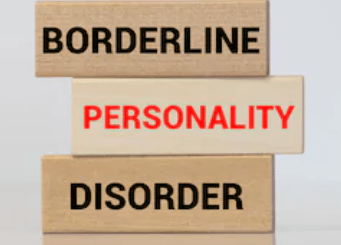Dating when you have borderline personality disorder: ‘I get obsessed really quickly’ – BBC
Read the full article here:
Borderline personality disorder affects one in 100 people, according to a mental health charity. It can make romantic relationships intense and difficult. BBC Three speaks to three people about how the condition has affected their relationships.
“When I was diagnosed with BPD, I thought I’d never have healthy relationships.”
That’s how 21-year-old Mae felt when she was told earlier this year that she had borderline personality disorder (BPD) – and it’s a sentiment shared on social media by many others with that diagnosis.
Almost the exact same idea appears as a caption on one of the many videos on the topic on TikTok – content under the hashtag #bpdisorder has amassed over 500,000 views at the time of writing. Much of it is people sharing their own experiences, sometimes with an injection of humour, and a recurring theme that comes up is heartbreak and toxic relationships.
BPD is becoming increasingly visible on social media, and Dr Liana Romaniuk, a child and adolescent psychiatrist and lecturer at the University of Edinburgh, thinks this is partly down to young people having a different approach to it than previous generations.
“I’ve had quite a few young people I work with ask me, ‘could I have BPD?’ I think there’s a growing awareness,” says Dr Romaniuk.
‘There were horrible notions people with BPD are manipulative’
Borderline personality disorder (BPD) is a mental health issue that causes emotional instability and can affect how people manage their moods and interact with other people. It’s thought around one in 100 people have it.
Many people with BPD have experienced trauma or neglect in childhood, which can make relationships difficult as an adult. Dr Romaniuk points out that “trauma” doesn’t have to mean something horrific or abusive – things like parents splitting up, being emotionally distant, or losing a parent at a young age could also have an effect.
Unfortunately, there can be a stigma attached to having a BPD diagnosis. Dr Romaniuk explains: “Professionally, there were a lot of horrible old-school notions that BPD was untreatable or people were being manipulative. Thankfully, that’s not the view held by anyone I work with at the moment.”
There is also an “ongoing debate” in professional circles, says Dr Romaniuk, as to whether BPD is in fact a personality disorder, or a reaction to past trauma.
“I’ve got huge difficulty with the phrase ‘personality disorder’, it feels like you’re stabbing someone in the heart when you say that,” she says. “It sounds like you’re saying there’s something fundamentally wrong with [the person], and that’s not the case. I think about it more in terms of, they’re survivors, they’re adapters.”
Getting ‘obsessive’ in relationships
Mae started researching BPD because she noticed herself becoming “obsessive” and anxious in relationships.
“I noticed my symptoms were a lot stronger and more dysfunctional when I was in a relationship,” she says, who was diagnosed in March 2021.
“I get obsessive quite quickly. I’ll constantly want to call or text, and I’ll isolate from other friends – I drop hobbies and dedicate all my time to that person.”
Things that seem like a non-event to someone without BPD can be catastrophic.
Read the full article here:



